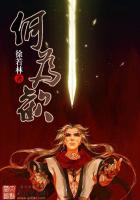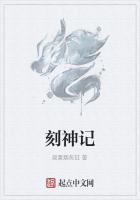They have their value to the individual in organizing his conduct, his standard of value. They are of enormous importance socially. A great law of feeling of whatever kind, of whatever elaboration, is this; it tends to spread from individual to individual and excites whole groups to the same feeling; tender feeling is contagious, and so is hate. We are somehow so made that we reverberate at a friendly smile in one way and to the snarl and stern look of hate in another way. Ordinarily love awakens love and hate awakens hate, though it may bring fear or contempt. It is true that we may feel so superior or cherish some secret hate that will make another's love odious to us, and also we may admire and worship one who hates us. These are exceptional cases and are examples of exceptional sentimental stability. It is of course understood that by love is not meant *** passion.
Here the curious effect of coldness is sometimes to fan the flame of passion. Desire obstructed often gains in violence, and the desire to conquer and to possess the proud, that we all feel, adds to the fire of lust.
Self-esteem, self-confidence, hateful to others if in excess or if obtrusive, is an essential of the leader. His feeling is extraordinarily contagious, and the morale of the group is in his keeping. He must not show fear, or self-distrust or self-lowering in any way. He must be deliberate, but forceful, vigorous, masterful. If he has doubts, he must keep them to himself or exhibit them only to one who loves him, who is not a mere follower. It is a law of life that the herd follows the unwounded, confident, egoistic leader and tears to pieces or deserts the one who is wearying.
The basic sentiments of interest, love and hate, projected outward or inward, organize personality. Men's characters and their destinies rest in the things they find interesting, the persons they love and hate, their self-confidence and self-esteem, their self-contempt and hatred. And it is true that often we hate and love the same person or circumstance; we are divided, secretly, in our tenderest feelings, in our fiercest hate, more often, alas, in the former. For occasionally admiration and respect will mitigate hate and render impotent our aim, but more commonly we are jealous of or envy son, brother, sister, husband, wife, father, mother and friend. We love our work but hate its tyranny, and even the ideal that we cherish, when we examine it too closely, seems overconventionalized, not enough our own, and it stifles and martyrs too many unpleasant desires. We rebel against our own affections, against the love that chains us perhaps to weakness and forces us, weary, to the wheel.
How deeply the feeling of "right" enters into the sentiments and their labors needs only a little reflection to understand. Here we come to the effect of the sentiment of duty, for as such it may be discussed. The establishment of conscience as our inner guide to conduct, and even to thought and emotions, has been studied briefly. On a basis of innate capacity, conscience arises from the teaching and traditions of the group (or groups). The individual who has a susceptibility or a readiness to believe and a desire to be in conformity accepts or evolves for himself principles of conduct, based on obligation, expectation of reward and fear of punishment, these entering in various proportions, according to the type of person. In children, or the very young child, expectation of reward and fear of punishment are more important than obligation, and this remains true of many people throughout life. Gradually right, what we call duty, becomes established as a guiding principle; but it must struggle with impulse and the desire for immediate pleasure throughout life. In fact, one of the dangers of the development of the feeling of duty lies in the view often held by those guided by principle and duty that pleasure is in itself somehow wrong and needs justification. Whereas, in my opinion, pleasure is right and needs no justification and is wrong only when it offends the fundamental moralities and purposes of Society.
The feeling of "right" depends to a certain extent on the kind of teaching in early childhood, but more on the nature of the individual. It is based on his social feeling, his desire to be in harmony with a group or a God that essentially stands above any group. For the idea of God introduces an element having more authority than the group whom He leads. Here also is a factor of importance: choice is difficult for the great majority. Placed in a situation where more than one response is possible, an unhappy state of bewilderment results unless there are formulae for action. The leader is the chooser for the group; religion is an established system of choices even in its "Thou shalt not" injunctions, and to be at one with God implies that one is following an infallible leader, and doubt and uncertainty disappear. Trotter[1] points out clearly the role the feeling of certitude plays in developing codes. As life becomes more complex, as more choices appear, the need of an established method of choosing becomes greater. The careful, cautious, conscientious types develop a system of principles for choice of action; they discard the uncertainty of pleasure as a guide for the certainty of a code laid down and fixed. Duty is the north star of conduct!
[1] "The Herd and its Instincts in Peace and War."















